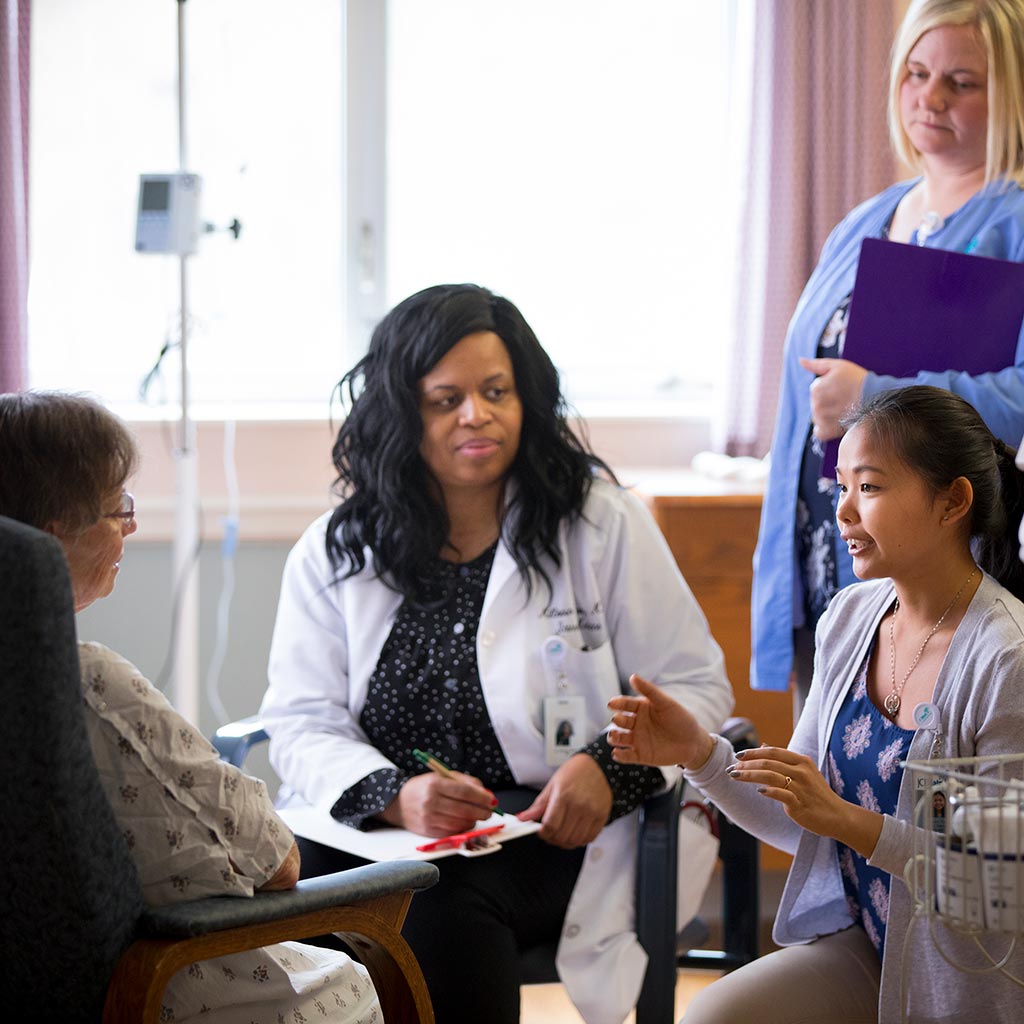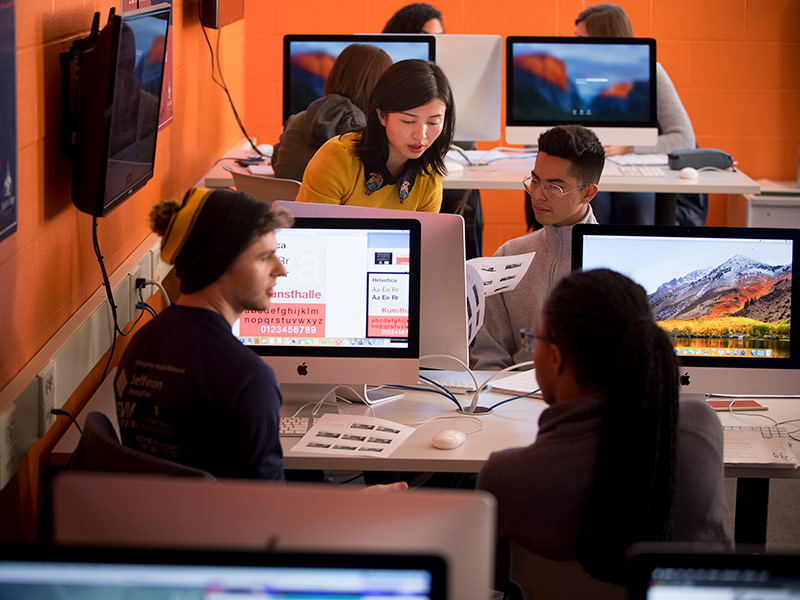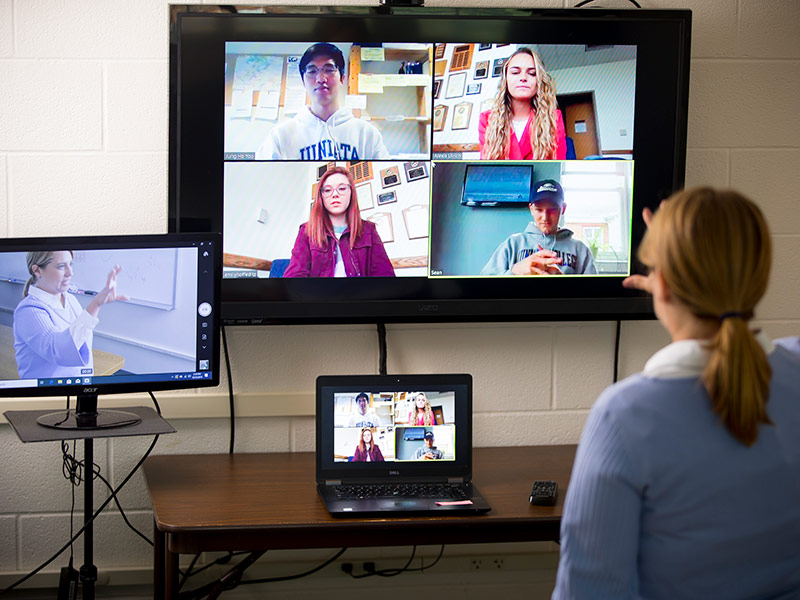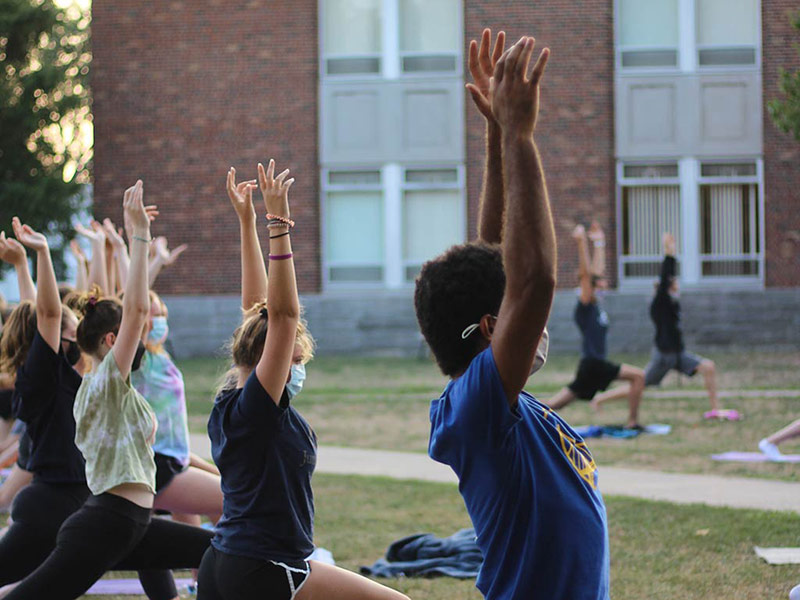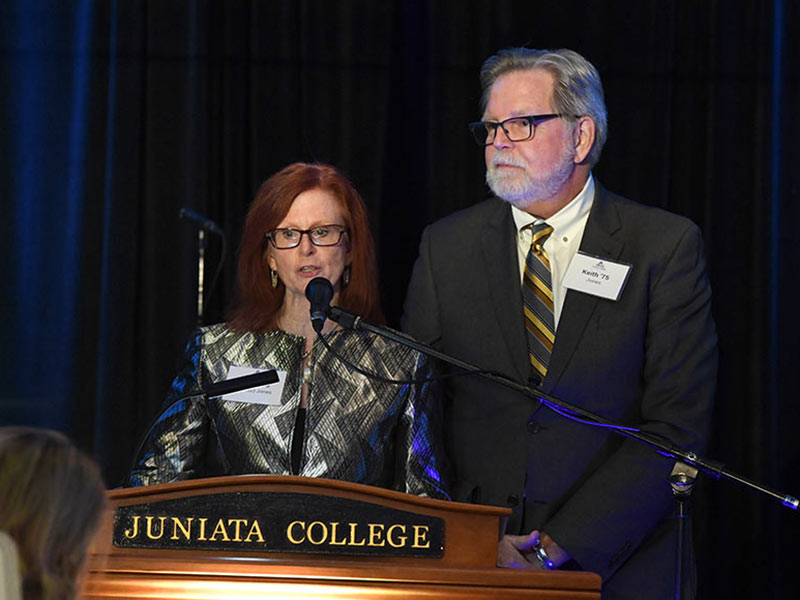Evan Bair ’20 of Wellsboro began volunteering at Aristacare at Huntingdon Park, a nursing and rehabilitation facility near campus in 2018.
“I was looking for some way to get involved with the local medical community and my adviser reached out looking for volunteers,” Evan said. “It sounded like a really good opportunity to learn about what the rehabilitation side is like for patients as well as what their experiences are in the nursing home setting.”
“Finding these types of projects to introduce into the general community is a good way of building bridges” Evan Bair ’20
Evan found the medical experiences he was seeking through his volunteer work, and he also found a new appreciation for the relationships people form throughout their lifetimes.
“As people get older, the importance of relationships really takes on a new meaning,” he said. “Having people visit can make a world of difference. I would go up a few times every week and those visits became something we all looked forward to. Having those abiding relationships gives purpose to our lives.”
He was impressed with the level of care and rapport the staff provided the residents.
“They are genuinely nice and good-hearted people, there,” he said. “They do an amazing job keeping people as happy as possible.”
The desire to help both the staff and the residents inspired Evan and his fellow student volunteers to research options to provide more outlets for comfort, especially for those residents for whom visits were rare.

“Evan is spectacular. He was always asking how Juniata could help and how students could be involved,” said Michelle Ayers, director of activities at Aristacare. “I believe when Evan started volunteering, we had one robotic dog. He saw how it was used and that it was in high demand among the residents. Facilities like ours are on a budget, so expensive things have to be carefully budgeted.”
The students opted to work to provide additional robotic pets for the residents of the facility to enjoy.
“We decided to do a 50/50 raffle to raise money and at the end of the fundraiser, we raised $400, which enabled us to buy three of the higher-end animals as well as a fourth one,” said Evan. “They are programmed to show affection and will purr or wag their tails—all of the normal happy behaviors a pet would exhibit. They are a very good surrogate for a real pet and very calming.”
Michelle shared many residents, especially those living with Alzheimer’s or dementia, are calmed by the simple weight of the pet on their lap, the feeling of stroking the fur, and the responsive behaviors. Many will open up with recollections of their own pets and engage in conversation enthusiastically. Time with the simulated pets also counters the agitation and anxiety which sometimes accompanies memory and cognitive conditions.
“For patients with dementia or Alzheimer’s, it’s a sad reality that it is difficult for them to tell the difference between the device and the real thing,” said Evan. “The biggest thing is that it contributes companionship.”
The students’ efforts to provide the robotic devices preceded the escalation of the COVID-19 outbreak across the United States. Nursing facilities discontinued visitors to protect their residents’ health, making companionship more vital to quality of life than ever.
“I had no idea when we ran the fundraiser that companionship would be so important,” he said. “Without visitors, it can be hard to break the monotony.”
The new dogs and cats arrived at Aristacare in April, a welcomed addition to the facility.
“We were doing small group activities while social distancing. There were no outside volunteers or entertainment, just staff and residents,” Michelle said. “That limits activities, but we were able to do things independently and alternated activities like Bingo over the intercom. The pets were a part of those activities because it was something residents could enjoy in their room or the hallway.”
Evan, who hopes to work in public health in a rural setting, aims to build bridges between the community and the medical system wherever he goes.
“Finding these types of projects to introduce into the general community is a good way of building bridges,” Evan said. “People were really interested to hear what we were doing and wanted to find ways to get involved.”
The lessons he learned while volunteering will stick with him throughout his career.
“This taught me that exposure to people who could use extra help is important. All students who want to go into medicine should get involved and volunteer, you learn a lot,” said Evan. “You can learn about problems and figure out ways to use resources from both the community and the medical system to come together and make lives better.”

